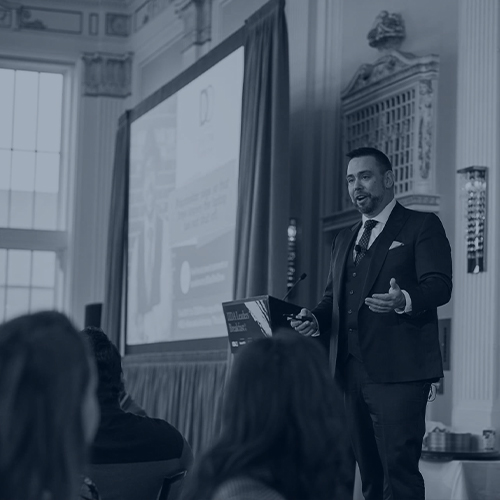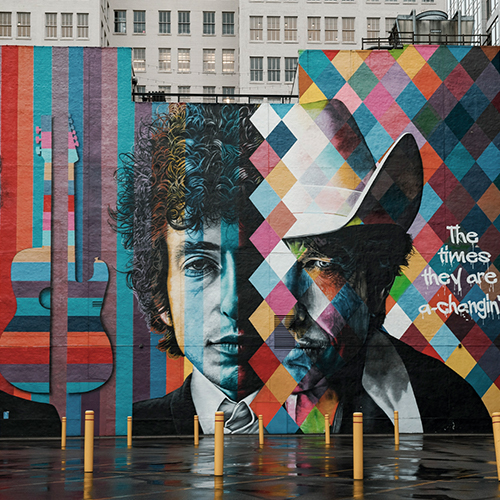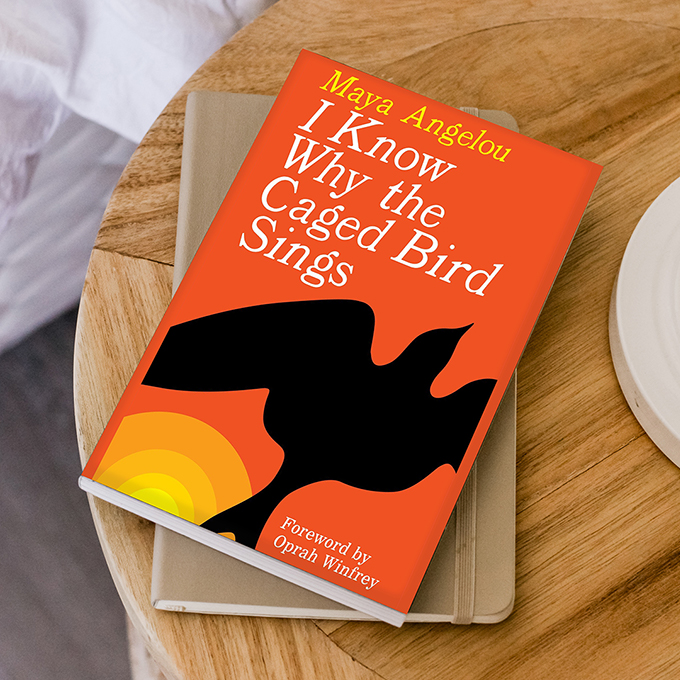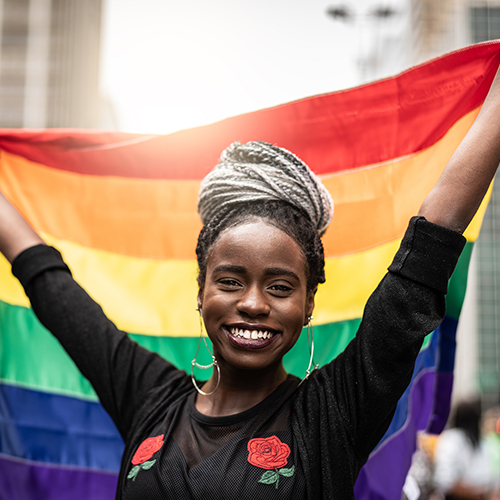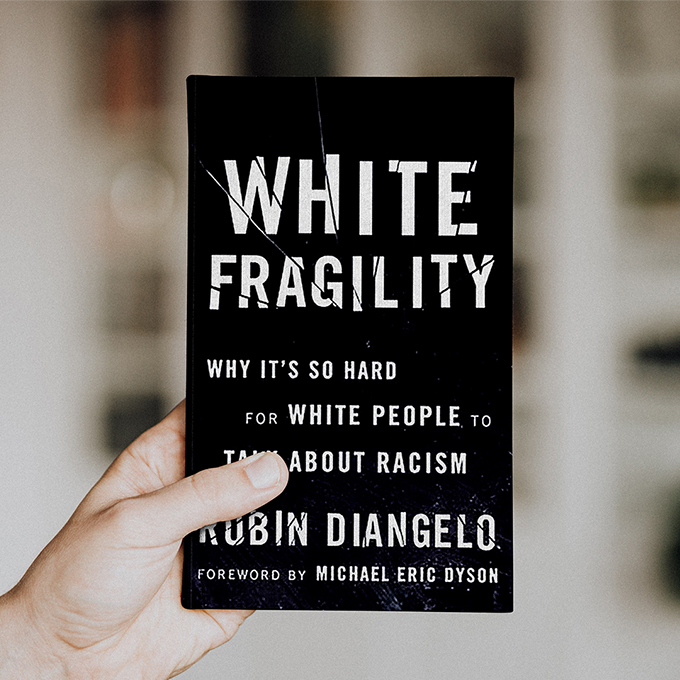Day One Reads – A Human Algorithm
I’ve always been fascinated by the concept of Artificial Intelligence, and I was equally fascinated by the perspective from which this book approached it.
A Human Algorithm is a profoundly hopeful book. While most of the discussion I’ve read on AI can be divided into two viewpoints: “it’s going to save us” or “it’s going to kill us all,” Flynn Coleman instead demonstrates that we have the opportunity to help it define us, and what the very concept of “us” means.

A Human Algorithm: How Artificial Intelligence is Redefining Who We Are
Category*: Research-Based
Author: Flynn Coleman
About the author: Flynn Coleman is a writer, international human rights attorney, public speaker, professor, and social innovator. She has worked with the United Nations, the United States federal government, and international corporations and human rights organizations around the world. Coleman has written extensively on issues of global citizenship, the future of work and purpose, political reconciliation, war crimes, genocide, human and civil rights, humanitarian issues, innovation and design for social impact, and improving access to justice and education. A Human Algorithm is her first book. She lives in New York City.
Website: flynncoleman.community
How I found it: Flynn Coleman and I were guests together on The Futures Intelligent Podcast, and I knew I had to hear more about her ideas. I ordered the book that night. You can hear the podcast episode here.
Book Jacket description:
The Age of Intelligent Machines is upon us, and we are at a reflection point. The proliferation of fast-moving technologies, including forms of artificial intelligence akin to a new species, will cause us to confront profound questions about ourselves. The era of human intellectual superiority is ending, and we need to plan for this momumental shift.
A Human Algorithm: How Artificial Intelligence is Redefining Who We Are examines the immense impact intelligent technology will have on humanity. These machines, while challenging our personal beliefs and our socioeconomic world order, also have the potential to transform our health and well-being, alleviate poverty and suffering, and reveal the mysteries of intelligence and consciousness. International human rights attorney Flynn Coleman deftly argues that it is critical that we instill values, ethics, and morals into our robots, algorithms, and other forms of AI. Equally important, we need to develop and implement laws, policies, and oversight mechanisms to protect us from tech’s insidious threats.
The realize AI’s transcendent potential, Coleman advocates for inviting a diverse group of voices to participate in designing our intelligent machines and using our moral imagination to ensure that human rights, empathy, and equity are core principles of emerging technologies. Ultimately, A Human Algorithm is a clarion call for building a more humane future and moving conscientiously into a new frontier of our own design.
Amazon Rating: 4.8 (13 ratings – Canada)/4.9 (28 ratings – US)
Goodreads Rating: 4.02 (61 Ratings)
Anything someone might quibble with: There’s not much here—the book examines both the traditional arguments about AI (save us/destroy us) before moving on to a larger, more integrated and holistic argument that individuals on either side of that ideological divide could choose to embrace (at least partially). However, there will doubtful be people who read this who see Coleman’s argument as naive and overly hopeful, with no historical example of society as a whole embracing the sort of moral-centred, future-focused decision-making for which she calls.
“Velcro quotes” (ideas that are going to stick with me moving forward):
- “Technology is not born with cognitive bias; it inherits it from those who code, program, and design it. If we want our rapidly advancing AI to be ethical, we need to commit to improving our own internal algorithms.”
- “Jim Al-Khalili, president of the British Science Association, has said, ‘AI is a bigger threat than climate change, pandemics, antimicrobial resistance, terrorism or world poverty.’ Physicist Louis Del Monte warns us that ‘today there’s no legislation regarding how much intelligence a machine can have, how interconnected it can be. If that continues, look at the exponential trend. We will reach the singularity in the timeframe most experts predict. From that point on you’re going to see that the top species will no longer be humans, but machines.’ Yet the vast majority of us disconnect from the debate, abdicating responsibility and even concern. This apathy toward our future, toward others, and toward what we leave for future generations may be our greatest peril.”
- “While our emergent intelligent technologies have ample downsides if we do vigilantly monitor their development…artificial intelligence also holds extraordinary potential to transform our world for the better. The Intelligent Machine Age is going to give us perhaps our last, best opportunity to construct a world where we can all live healthier, happier, more purposeful, and creative lives. It’s still our choice.”
- “Whether AI will foster a utopian or dystopian existence is a matter for speculation, but the window for us to have influence on the outcome is closing.”

Technology is not born with cognitive bias; it inherits it from those who code, program, and design it. If we want our rapidly advancing AI to be ethical, we need to commit to improving our own internal algorithms.

Total Pages: 256
Total “pulled passages”: 128
Page to Pulled Passage Ratio**: 2:1
P2P Ranking within category for 2020: #2 of 3
Overall P2P Ranking for 2020: #2 of 8
*I break books into one of three categories in order to better compare apples-to-apples.
- Reflective: Relies on first-person stories or insights
- Biographical: Tells the story of an individual or organization from a third-person perspective
- Research-based: The author(s) collect third-party research to support their discussion of a particular topic.
**As I read, I highlight certain passages/insights that really connect with me. Things that make me think “buying this book was worth it for ideas/information like that.” At the end of the book, I go back and “pull” them from the book and copy them all into a single document. P2P Ratio indicates how many pages on average tend to go by between these particularly powerful insights. . This book’s 2:1 ratio means I felt there was a passage worth pulling out and writing down every second page.

